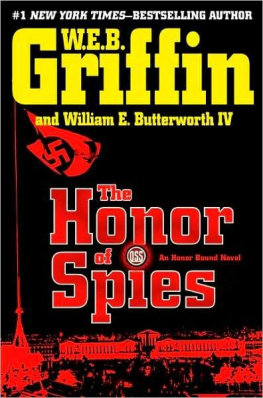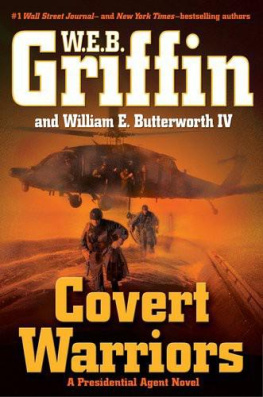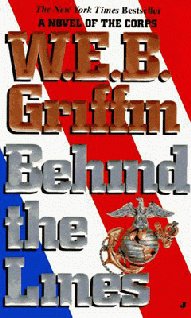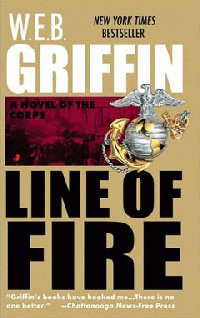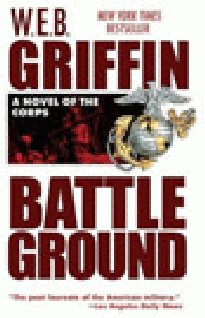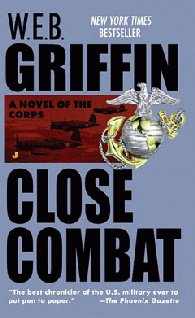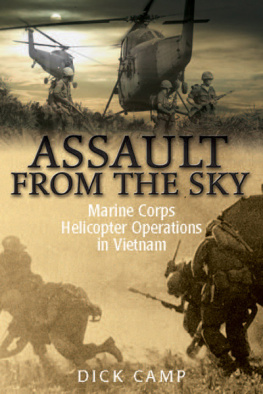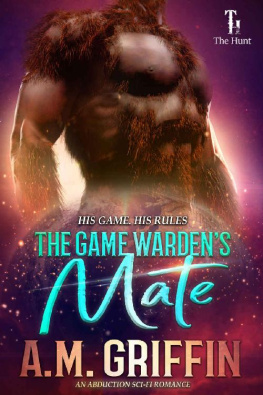W.E.B. Griffin - The Corps 03 - Counterattack
Here you can read online W.E.B. Griffin - The Corps 03 - Counterattack full text of the book (entire story) in english for free. Download pdf and epub, get meaning, cover and reviews about this ebook. genre: Prose. Description of the work, (preface) as well as reviews are available. Best literature library LitArk.com created for fans of good reading and offers a wide selection of genres:
Romance novel
Science fiction
Adventure
Detective
Science
History
Home and family
Prose
Art
Politics
Computer
Non-fiction
Religion
Business
Children
Humor
Choose a favorite category and find really read worthwhile books. Enjoy immersion in the world of imagination, feel the emotions of the characters or learn something new for yourself, make an fascinating discovery.

- Book:The Corps 03 - Counterattack
- Author:
- Genre:
- Rating:5 / 5
- Favourites:Add to favourites
- Your mark:
- 100
- 1
- 2
- 3
- 4
- 5
The Corps 03 - Counterattack: summary, description and annotation
We offer to read an annotation, description, summary or preface (depends on what the author of the book "The Corps 03 - Counterattack" wrote himself). If you haven't found the necessary information about the book — write in the comments, we will try to find it.
The Corps 03 - Counterattack — read online for free the complete book (whole text) full work
Below is the text of the book, divided by pages. System saving the place of the last page read, allows you to conveniently read the book "The Corps 03 - Counterattack" online for free, without having to search again every time where you left off. Put a bookmark, and you can go to the page where you finished reading at any time.
Font size:
Interval:
Bookmark:
Griffin, W.E.B.
The Corps 03 - Counterattack
Book III
The Corps
The Corps is respectfully dedicated to the memories of
Second Lieutenant Drew James Barrett III, USMC
Company K, 3rdBattalion, 26thMarines
Born Denver, Colorado, 3 January 1945
Died Quang Nam Province, Republic of Vietnam,
27 February 1969;
and
Major Alfred Lee Butler III, USMC
Headquarters 22ndMarine Amphibious Unit
Born Washington, D.C., 4 September 1950
Died Beirut, Lebanon, 8 February 1984.
"Semper Fit"
And to the memory of Donald L. Schomp
A Marine Fighter Pilot who became a legendary
U.S. Army Master Aviator
RIP 9 April 1989.
Chapter One
(One)
Pearl Harbor
Oahu Island, Territory of Hawaii
7 December 1941
The Japanese Carrier Task Force charged with the destruction of the United States Pacific Fleet began launching aircraft approximately 305 nautical miles north of Pearl Harbor.
These aircraft proceeded in a single stream until they were about 12S miles from Pearl Harbor, where the stream split in two. Fifty miles from Oahu, the left column of the attacking force divided again into three more streams.
The first two streams of the left column turned right and headed for Pearl Harbor, across the island. The third stream continued on course until it had flown beyond the tip of Oahu, then turned toward the center of the island and made its approach to Pearl Harbor from the sea. It began its attack at 0755 hours.
Meanwhile, the right stream of Japanese aircraft had divided in two as it approached Oahu. One stream crossed the coastline and made for Pearl Harbor, on the other side of the island. The second continued on course past the island, and then turned back to attack Pearl Harbor from the open sea. Its attack began at 0900.
All of these attacks went off smoothly and as planned. And at 1030, the Task Force radioed a coded message to Imperial Japanese Naval Headquarters. The code was "Tora, Tora, Tora. " It signified success.
Fortunately for the Americans, the Japanese success was not unqualified. The surprise attack had found all of the battleships of the United States Pacific Fleet at anchor, and had sunk or severely damaged most of them. But two U.S. aircraft carriers, seven cruisers, and their screening vessels were at sea, in three task forces, and were not harmed.
When the first Japanese bombs fell at Pearl Harbor, Staff Sergeant Joseph L. Howard, USMC, of Headquarters Company, 1stMarine Defense Battalion, was asleep. He shared a room with a mess sergeant, who was on duty, and who could be counted on to bring a thermos of coffee and some doughnuts back to their room when the mess had finished serving breakfast.
Staff Sergeant Howard was twenty-four, young for his rank. He was six feet one inches tall, weighed 185 pounds, and was broad-shouldered and slim-waisted. He had sharp features, intelligent eyes, and wore his light brown hair just long enough to part. At one time it had been seriously proposed that Staff Sergeant Howard be used as a model for the photographs in a new edition of the Handbook for Marines.
The Handbook for Marines was issued to every enlisted Marine; many officers-including most company-grade officers- also had copies. Among its many illustrations were photographs of a Marine modeling the various service uniforms. A Good Marine was supposed to look like that. Similarly, there were photographs showing the correct way to execute the manual of arms and the various movements in close-order drill.
Staff Sergeant Joe Howard in one of his perfectly fitting uniforms, with his erect carriage and broad shoulders, looked exactly like the Perfect Marine.
Joe Howard had been a Marine for seven years and six months.
He had enlisted right out of high school, on what was called a "baby cruise," a term of enlistment which extended to his twenty-first birthday; the regular term of enlistment was four years. At that point (he turned twenty-one on August 14,1937), he was given the choice of being transferred to the Fleet Reserve-in effect discharged-or shipping over for a regular, four-year enlistment.
For most of his "baby cruise," Howard served with the Marine detachment on board the battleship Arizona, and he won promotion to private first class at the recommendation of her captain, who had been impressed with his bearing and appearance when Howard had served as his orderly. After leaving Arizona, he was assigned to the Philadelphia Navy Yard.
At the Navy Yard, a salty old gunnery sergeant took a liking to him, had him assigned to the arms locker as an armorer, and taught him how to shoot. Really shoot. Not only well enough to qualify for the extra pay that went with the Expert Rifleman qualification badge, but well enough to shoot competitively. He almost made it onto the East Coast Rifle Team (one step down from the U.S. Marine Corps Rifle Team), and he was fairly confident that he could make it the next time around.
Gunny MacFarland also got him a job as an off-duty bartender in the officers club, working Friday and Saturday nights and for the luncheon buffet on Sunday. That thirty cents an hour added enough to his PFCs thirty dollars a month, supplemented by his five-dollar-a-month Expert Riflemans pay, to permit him to buy a Ford Model A.
In August of 1937 he had to choose between getting out of the Corps and taking his chances on civvy street, where jobs were hard to come by, particularly if you didnt have a trade, or shipping over, which meant a dollar and a dime a day, plus uniforms, three square meals a day, and a place to sleep out of the rain. Thats what Joe had told his mother.
But there was more to it than that. Not only were there other material advantages, like being paid to do something you liked to do-shooting, and the opportunities for travel that went with being a competitive rifle shooter, and things like that-but there was also the chance to make something of himself. And just being a Marine.
Gunny MacFarland told him that with his record, and providing he kept his nose clean, it was almost a sure thing that he would make corporal before his second hitch was up, maybe even sooner than that, say in two years.
Joe Howard knew that Gunny MacFarland was bullshitting him to get him to ship over. In two years he would be twenty-three. There were very few twenty-three-year-old corporals in the Marines. In 1937 the Corps had an authorized strength of only twenty-five thousand officers and men, which meant that nobody moved up in rank very fast. His chances of making corporal on his second hitch were almost nonexistent.
But it was more than a little flattering to have MacFarland bullshit him in order to get him to ship over and stay in the Corps. MacFarland was one hell of a Marine, and to know that MacFarland wanted him to stay in the Corps meant that MacFarland thought he had at least the potential to be a good Marine.
Besides, if Howard shipped over, there was nothing in it for MacFarland, either. He wasnt a recruiting sergeant. And nothing made MacFarland ask Joe over to his quarters for Sunday-night supper, sort of taking him into the family. Mrs. MacFarland even made him a birthday cake with candles when Joe turned twenty.
There really had not been much of a choice between going back to Birmingham, Alabama, and maybe getting lucky and getting a job in a steel mill, or shipping over in the Corps, even if MacFarland was bullshitting him about making corporal.
The same month he shipped over, PFC Howard met the Major General Commandant of the Marine Corps, Thomas Holcomb. More or less for the hell of it, thinking that it was at least practice, Joe Howard got into his civilian clothes one Sunday, drove his Model A across New Jersey to a place called Sea Girt, and entered a civilian rifle match run by the National Rifle Association on the New Jersey National Guards rifle range.
Font size:
Interval:
Bookmark:
Similar books «The Corps 03 - Counterattack»
Look at similar books to The Corps 03 - Counterattack. We have selected literature similar in name and meaning in the hope of providing readers with more options to find new, interesting, not yet read works.
Discussion, reviews of the book The Corps 03 - Counterattack and just readers' own opinions. Leave your comments, write what you think about the work, its meaning or the main characters. Specify what exactly you liked and what you didn't like, and why you think so.

